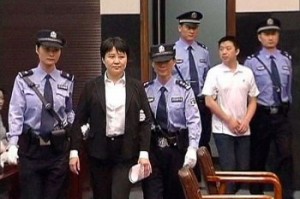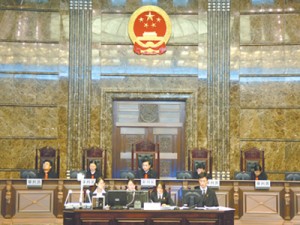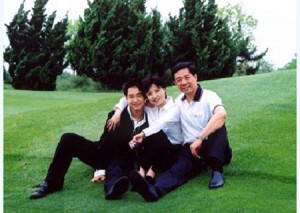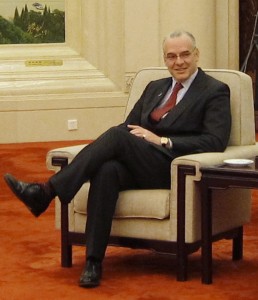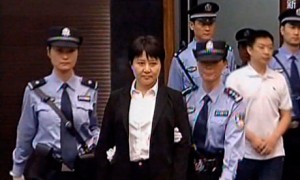Glenn Tiffert On China’s Recent Jurisdictional Issues
 Jurisdiction is central in any legal system; it is jurisdiction that gives a court its power to administer justice. Without proper jurisdiction, a court’s opinion is defective. Thus, given its importance, all legal systems design specific rules governing when a court has jurisdiction over a case.
Jurisdiction is central in any legal system; it is jurisdiction that gives a court its power to administer justice. Without proper jurisdiction, a court’s opinion is defective. Thus, given its importance, all legal systems design specific rules governing when a court has jurisdiction over a case.
But recently in China, how courts have gained jurisdiction in criminal trials has been called into question. The trial of Gu Kailai, for a murder that took place in Chongqing, was heard in Hefei. Wang Lijun was police chief of Chongqing, but his crimes are being heard in a Chengdu court. Has the Chinese legal system ignored all rules concerning what gives a court jurisdiction? Or are there other rules that apply?
Glenn D. Tiffert, a Ph.D. candidate in History at the University of California, Berkeley with a focus on the legal history of the PRC, explains below that what might look like a random selection of courts actually has a basis in law. Tiffert also reminds us that there is more than just the Criminal Procedure Law to look at in understanding the Chinese criminal legal system.
Mixed-Up Confusion? The Different Ways Chinese Courts Obtain Jurisdiction
By Glenn D. Tiffert
Part 1 of a two part series exploring the jurisdictional issues in recent criminal cases
As the Chinese legal system works its way through the various cases connected to the “Bo Xilai Affair,” it is a good time to review the usually unglamorous procedural rules governing jurisdiction. The Bo Xilai Affair has brought these jurisdictional rules to the forefront and is generating more than the usual amount of interest among China watchers; even those focused on Chinese law are finding twists worth exploring.
To keep things simple, I will explore jurisdictional issues in the Gu Kailai and Wang Lijun cases alone, although my points could apply more generally to the other defendants connected to Gu, namely her accomplice Zhang Xiaojun, and the four police officers charged with covering up her crime. This post will look at territorial jurisdiction, in other words, where the trials were held. A later post will examine why both cases were assigned to intermediate level People’s Courts.
To recap: Gu Kailai was convicted of the intentional homicide of Neil Heywood, a British citizen resident in China, and the crime was alleged to have taken place in Chongqing, Sichuan province, the city her powerful husband, Bo Xilai, presided over as Party Secretary. However, Gu’s trial took place 800 miles away from the city of Chongqing, in the city of Hefei, Anhui province, a place that had no known connection to the homicide, or to the alleged crimes of the other defendants associated with her. Observers have suggested various practical or political reasons for why the trial was not held in Chongqing, and why it may have been assigned to Hefei, but those need not concern us here. We are interested in discovering the legal authority for the assignment of the case to Hefei.
Article 24 of the Criminal Procedure Law of the PRC establishes the general rule that: “A criminal case shall be under the jurisdiction of the People’s Court in the place where the crime was committed. If it is more appropriate for the case to be tried by the People’s Court in the place where the defendant resides, then that court may have jurisdiction over the case.” Additionally, the Criminal Procedure Law provides rules for cases in which more than one court could claim jurisdiction, or in which jurisdiction is unclear. For example, Article 25 states: “When several People’s Courts at the same level have jurisdiction over a case, it shall be tried by the People’s Court that first accepted it. When necessary the case may be transferred for trial to the People’s Court in the principal place where the crime was committed.” However, in the case of Gu Kailai, none of these basic rules provide a basis for trying her in Hefei. As a result, we must look elsewhere.
The Chinese legal system provides several routes for transferring jurisdiction over a case from one court to another. For example, pursuant to the Criminal Procedure Law and the Law on the Organization of the People’s Courts, a lower level court with jurisdiction over a major or complex case can request a higher level court to take over the case. But because Gu Kailai was charged with a capital crime, we can rule this path out. Article 20 of the Criminal Procedure Law stipulates that intermediate level courts have jurisdiction of first instance over crimes punishable by life imprisonment or the death penalty and, because this case was actually tried by an intermediate level court, a lower court could not have had jurisdiction over it first.
One jurisdictional route rises above the rest. Article 26 of the Criminal Procedure Law provides that: “A People’s Court at a higher level may  assign a People’s Court at a lower level to try a case over which jurisdiction is unclear and may also instruct a People’s Court at a lower level to transfer the case to another People’s Court for trial.”
assign a People’s Court at a lower level to try a case over which jurisdiction is unclear and may also instruct a People’s Court at a lower level to transfer the case to another People’s Court for trial.”
Article 26 can be parsed in different ways, with different results attaching. To resolve the ambiguity, we must do what we do in any legal system, move beyond the four corners of the statute to consult supporting texts and practice, both of which indicate that the Supreme People’s Court (SPC) essentially regards Article 26 as comprising two independent clauses, the second of which matters here. Hence we get: “A People’s Court at a higher level may… instruct a People’s Court at a lower level to transfer the case to another People’s Court for trial.”
The authoritative SPC Interpretation on Certain Questions Pertaining to the Implementation of the Criminal Procedure Law of the PRC (“the SPC Interpretation”) stipulates two ways that can happen. First, under Article 18 of the SPC Interpretation, when the President of a lower level court must recuse himself[1] and it would be “unsuitable” for that court to assert its jurisdiction over a case, that court may ask a higher level court to take over jurisdiction. The higher level court may take jurisdiction or assign it to another court at the same (lower) level as the first court. Article 19 of the SPC Interpretation requires the higher court to send its decision on jurisdiction – 管辖决定书 (guanxia juedingshu) – to the lower court newly awarded jurisdiction and to other relevant courts. Second, Article 22 of the SPC Interpretation allows a higher level court on its own initiative to assign jurisdiction over a case from one lower level court to another lower level court “when necessary,” without first requiring a request from below or that the second court be of the same level as the first.
Admittedly, we know few hard facts about the procedural history of the Gu Kailai case, but one nugget stands out. The Xinhua reporting on the trial indicates that the SPC issued a decision on jurisdiction to the Hefei Intermediate People’s Court, and the Hefei court accepted the case for trial on that basis. We do not know precisely whether this decision was based on Article 18 or 22 of the SPC Interpretation, as either might reasonably have applied, but the SPC evidently used its inherent power under Article 26 of the Criminal Procedure Law, as expounded in the SPC Interpretation, to transfer Gu’s case to Hefei. One may furthermore assume that the Supreme People’s Procuratorate issued complementary instructions so that procurators would actually argue the case there, too.
Assuming that the SPC complied with its own Interpretation of the Criminal Procedure Law, we may infer from its decision on jurisdiction that another court originally accepted the case. We do not know which court that may have been, but an obvious candidate would have been the Chongqing Intermediate People’s Court. Under this scenario, three possibilities present: first, the unnamed court claimed jurisdiction over the case without the approval of senior Party and judicial authorities in Beijing, which seems implausible; second, Beijing granted its approval and then changed its mind; and third, acceptance by the unnamed court served, in the interests of formal compliance with procedural requirements, purely as a trigger for transfer to Hefei. Regardless, as the highest court in the land, once the SPC transferred jurisdiction, the decision was effectively immune from challenge or appeal.
In comparison, the Wang Lijun case is more straightforward. At least one of Wang’s alleged crimes took place in Chengdu: his purported “defection” in the United States consulate. Notwithstanding substantive problems matching the facts as we know them to the elements of this crime, Chengdu judicial authorities may properly claim jurisdiction over the case under Article 25 of the Criminal Procedure Law (discussed above), and barring an unlikely protest from their counterparts in Chongqing or any other locale in which Wang is alleged to have committed crimes, the trial will take place in the Chengdu Intermediate People’s Court. Indeed, given the stakes in trying Wang, one may assume that the SPC, and the political leadership behind it, assents to Chengdu jurisdiction, either tacitly or by assignment. When the verdict is announced, we may know which.
Historically, reassignments of lower court jurisdiction by higher level courts are not uncommon in the Chinese judicial system, where concerns about local protectionism, judicial independence and varying levels of judicial competence adversely affecting trial outcomes run high. The 2008 criminal trial of former Shanghai Party Secretary Chen Liangyu in Tianjin is another prominent, recent example. Cases like those of Chen Liangyu and Gu Kailai shine a spotlight on one of the Chinese judicial system’s underappreciated features.
[1] Article 28 of the Criminal Procedure Law defines the grounds for recusal, including “relations with a party to the case that could affect the impartial handling of the case.”
 On Facebook
On Facebook By Email
By Email 